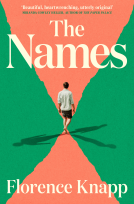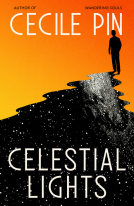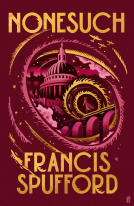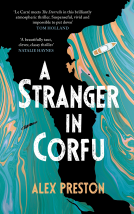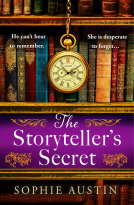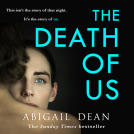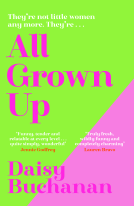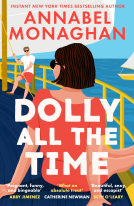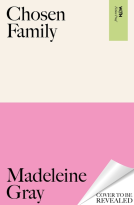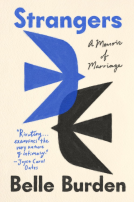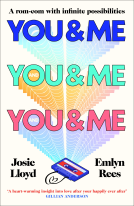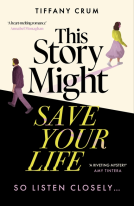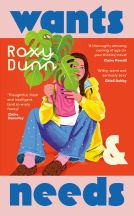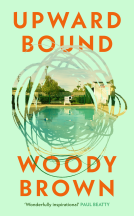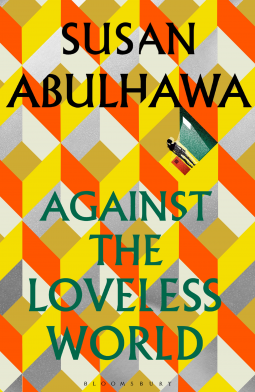
Against the Loveless World
by Susan Abulhawa
This title was previously available on NetGalley and is now archived.
Send NetGalley books directly to your Kindle or Kindle app
1
To read on a Kindle or Kindle app, please add kindle@netgalley.com as an approved email address to receive files in your Amazon account. Click here for step-by-step instructions.
2
Also find your Kindle email address within your Amazon account, and enter it here.
Pub Date 23 Jul 2020 | Archive Date 23 Jul 2020
Talking about this book? Use #AgainsttheLovelessWorld #NetGalley. More hashtag tips!
Description
A furious and beautiful book from an internationally bestselling author of formidable standing - on sex and power, persecution and resistance
Nahr has been confined to the Cube: nine square metres of glossy grey cinderblock, devoid of time, its patterns of light and dark nothing to do with day and night. Journalists visit her, but get nowhere; because Nahr is not going to share her story with them.
The world outside calls Nahr a terrorist, and a whore; some might call her a revolutionary, or a hero. But the truth is, Nahr has always been many things, and had many names.
She was a girl who learned, early and painfully, that when you are a second class citizen love is a kind of desperation; she learned, above all else, to survive.
She was a girl who went to Palestine in the wrong shoes, and without looking for it found what she had always lacked in the basement of a battered beauty parlour: purpose, politics, friends. She found a dark-eyed man called Bilal, who taught her to resist; who tried to save her when it was already too late.
Nahr sits in the Cube, and tells her story to Bilal. Bilal, who isn’t there; Bilal, who may not even be alive, but who is her only reason to get out.
Advance Praise
PRAISE FOR SUSAN ABULHAWA
'The writer's pain - and the beauty of her prose – are very real' DAILY TELEGRAPH
'Abulhawa's writing shines ... Friendship, adolescence, love: ordinary events, offset against extraordinary circumstances, make the story live' INDEPENDENT
'Hard to bear but impossible to ignore … Shows how history’s assault on each person is public, and how it nevertheless cannot extinguish the private experience of grief or the secret sense of eros. Abulhawa's vision is precise, courageous, and dazzling' TEJU COLE
Available Editions
| EDITION | Hardcover |
| ISBN | 9781526618795 |
| PRICE | £16.99 (GBP) |
Average rating from 38 members
Featured Reviews
 The Candid B, Reviewer
The Candid B, Reviewer
Susan's writing is impeccable but I already knew this having devoured Mornings in Jenin and The Blue Between Sky and Water. Against the Loveless World is no exception. Gripping and fearless, devastating and beautiful all at the same time. This is a must-read! 5/5
Against the Loveless World is a powerful novel about a Palestinian woman telling her story from within a jail cell. Nahr grew up in Kuwait, did what she had to in order to survive and have money for her family, and found love and politics when she went to Palestine, both of which led her to end up in the Cube, an advanced Israeli jail cell. As she waits, with light and dark meaning nothing and the shower only turning on seemingly at random, she tells her story, and hopes that Bilal is still alive.
Abulhawa's prose is immediate and transports you into Nahr's world, both inside her cell and beforehand, with a narrative that spans years and conflicts. The structure works well to slowly reveal what happened, as the events span occupation, sex work, death, love, action, and politics, whilst also focusing on character and how Nahr feels. As a narrative based on accounts from multiple women about their lives, it is full of detail and harsh realities, and is a powerful look at why people make the choices they do, and how love might not always look the same.
This is not necessarily an easy book to read at times, but it is gripping and eye-opening, showing elements of Palestinian people's lives over the past few decades and complexities of politics, love, and sexuality to different people and in different countries.
I honestly don’t even know where to begin in expressing how utterly devastating and beautiful this book is. Against the Loveless World follows Nahr, a Palestinian woman who has been imprisoned in the Cube, a space devoid of any notion of time, with infrequent visitors who try and extract her story with little to no success. The novel goes back and forth in time, showing Nahr’s life and events leading up to her imprisonment, with such a profound, painful and ultimately hopeful narrative that I’ll truly, never forget. This book is own voices for palestinian rep.
I’ll say this right from the start; this is not an easy book to read, and nor do I think it’s meant to be. It tells a vital story, a story of one woman’s survival, displacement and suffering but also her joy, her love and revolutionary spirit. Nahr is a character I could relate to on so many levels and in such a personal way, which made me feel even more connected to the novel. Despite going through some of the most difficult things life can throw at someone, she continues to fight and refuses to cower or back down. There’s a lot of suffering in this novel, from personal trauma to deep rooted generational trauma and displacement which comes across on the page in such a raw and powerful way. Ultimately, I believe the message is one of hope and rebellion in the face of adversity, and indicates just how resilient Nahr is.
A huge part of Nahr’s identity and a driving force in the novel, is her Palestinian heritage and her frayed connection to Palestine. When we first ‘meet’ Nahr, she feels a disconnect to her homeland, having visited only when she was young and knowing only what her grandmother Sitti Wasfiyeh and her mother, tell her. As her circumstances change however, she eventually finds her way back to Palestine and forges a bond with her land and people which results in some of the most heart wrenching and gorgeous prose and parts of the novel. The author delves deep into the Palestinian / Israeli conflict and doesn’t shy away from the harsh realities of life for Palestinians; the restrictions, the imprisonment and torture, loss of life and suppression of rich culture and tradition.
Not only is Nahr a compelling protagonist, but all the secondary characters are also well developed and interesting. I adored Nahr’s family, especially her grandmother Sitti Wasfiyeh and her brother Jehad. The family dynamics felt so real and so well written that I totally believed in them. I enjoyed the fact that the importance of family was so central, and this wasn’t just blood related but also featured the found family trope too. When Nahr is in Palestine she becomes part of something bigger, and also finds some of the closest friendships of her life amongst Bilal, Jumana, Ghassan, Samer, Wadee and Faisal.
After going through so much, Nahr kind of gives up on the idea of love and a healthy relationship with men, as all she has known thus far is suffering in her personal life. However, when she returns to Palestine and meets Bilal, she finds herself involved in a passionate cause of rebellion and slowly falls in love at the same time. These are some of my favourite parts of the book and Abuhalwa writes this relationship and the development in such a gorgeous way. I really grew to love Nahr as a character so seeing her finally get some semblance of peace and happiness despite the traumas of her past was so satisfying.
Overall, Against the Loveless World was a truly unique and moving reading experience and I would really encourage you to read this book. I already know it will be one of my favourite books of the year and I can’t recommend it enough.
 Media/Journalist 576826
Media/Journalist 576826
This is an extraordinary book which feels closer to fact that fiction and is written in the first person, utterly convincing documentary style. A young Palestinian exiled from her home country is gradually drawn from her loving family and their values into a life of prostitution and then terrorism. The author describes these incremental steps with dispassion, we never lose sympathy, allowing the reader to understand how easily any of us could fall into the same trap and the plight of the dispossessed. With over 6 million refugees world wide, this is a salutary and important tale. I would highly recommend this book and thank you Netgalley and the publishers.
 Matthew S, Reviewer
Matthew S, Reviewer
This is a warm book about bleak situations, ranging from a Palestinian neighbourhood in Kuwait before the Iraqi invasion, through the Iraqi occupation and the return of a now-vengeful Kuwaiti government once the Iraqis were expelled, to a more difficult life in Jordan (a much poorer country than Kuwait) and then a life of knife-edge danger in Palestine itself. The heroine’s only defence against psychopathic treatment is to love those she can. (That’s what separates the sheep from the sociopaths.) The people she loves includes one person who appears to exploit her in a very serious way and another who initially despises her for her (largely misreported) sexual conduct.
Arab and particularly Palestinian culture is shown in loving detail, and this is a necessary antidote to the perceptions that Westerners usually have of Palestine, which is a dusty impact zone for whatever artillery is fired at it. That perception is shaped by journalists feeling they have to “tell the truth” about what seem to be the most important things: such as little boys being shot by Israeli settlers and so on. That needs to be reported, but if it is all you report, then the story you are telling becomes a falsehood, because you are not showing the world what is worthwhile about the culture that is being steadily destroyed. The author isn’t merely trying to show that Palestinian culture is being cruelly destroyed, but that it is well worth saving. That is not really what we get from the “victimology” of social-Marxism, because Marxism in any form seeks to destroy ALL existing culture in order for something “better” to rise from the ashes. (If the fire is hot enough, nothing ever rises from the vitrified ash at all.) Anyone seeking to “help” Palestine on the basis of such victimology is doing the work of the Israeli oppressors for them.
Along the way, the author allows her heroine to realise that if they did not have the Palestinians to oppress, the Israelis would almost certainly kill each other with vigour and enthusiasm. This may be more literally true than even the author realises: during my past attempts to befriend apparently reasonable Israelis, I was surprised and not a little disturbed to discover how just much they loathed Israelis of other persuasions and how much they were hated in return. I would refer readers to the last third or so of “Screwtape Proposes a Toast” by CS Lewis (if they cannot bear to read the whole thing, which is not very long.) This has been Israel’s problem for millennia.
The heroine and other Palestinians are not solely oppressed by the Israelis and Americans, however: they are oppressed by many Kuwaitis (not all, by any means), largely because the Palestinians were exploited by Saddam to supply a tissue of justification for his attempted conquest of Kuwait. The scope of this book does not extend quite to the present day, but the way that the Iranian regime is currently exploiting the Palestinian cause to further its own regional interests is sowing the seeds of further oppression of Palestinians by Arab regimes that the Iranian one seeks to destroy. Where, exactly, is the line drawn between such exploitation and direct oppression? Is there one?
Although this book depicts some inspiring acts of resistance and defiance (not just against the Israelis) it’s pretty clear that these will not create a solution by themselves and are really a form of pleading for some outside force to step in and change the situation. For this to happen, there has to be a change in the attitude and behaviour of several different governments, and for THAT to happen, it has to be possible for people with clean hands to access the top jobs in the countries concerned. As I have tried to make clear in my own work, if you have conventions or even formal systems which prevent persons with clean hands getting to the top (because, you know, you cannot trust anyone with clean hands: they will never do the necessary dirty work) you will be ruled by homicidal sociopaths in perpetuity and they will ALWAYS be able to think of more dirty work that needs doing.
Against the Loveless World is such a compelling read. Once again, just like in Mornings in Jenin, Susan Abulhawa focuses on the plight of the colonised, the oppressed, the displaced, the minorities, the political prisoners, the refugees, the forgotten- those who were not allowed live in their own country, because it was decided by the powers that be, to divide it and offer it in reparation for the crimes of another.
Here we see Nahr, daughter of Palestinian refugees, try to make her way in life- in Kuwait initially, viewed as a second class citizen purely because of her ancestry. Political instability and love, as well as other motives, take her from Kuwait, to Jordan and to Palestine- through the Iraq war, the search for refuge and the Israeli’s ceaseless tyranny upon Palestine. It mirrored the suffering of so many oppressed peoples- those in South Africa suffering under the apartheid regime, Catholics treated as second class citizens under British rule in Northern Ireland, the Black man’s struggle against segregation during the civil rights movement in the USA. These people just like the Palestinians were beaten, tortured, made to sign confessions, convicted without trial, falsely accused, oppressed and often killed, because of the ideals and power driven obsessions of others. This story is fiction, but based on fact, and represents what has happened and what is still happening around the world today. It shows how love can blossom despite the restrictions put on people. Some things can never be taken away. Susan Abulhawa’s writing is fantastic, some of the best I’ve ever read. The details she includes of the smallest rituals, of nature, of scenes and of people put us in the moment and makes us feel as we’re right there in the heart of the story. She’s a master of her trade.
 Deja R, Reviewer
Deja R, Reviewer
‘I don’t cry in this place. There isn’t room enough for the heart to move. There are no winds to rustle it. Silence here is not the absence of sound, but the presence of a dense, unshakable stillness. Like dark matter in space, silence here is a living force that slides into all corners and seams.’
I'm overwhelmed by this devastating yet beautiful story of Nahr, a Palestinian woman who tells how she ended up in a terrible prison. Nahr has gone through enough to give up on love, but still remains hopeful and loves the people around her as if they were all family. I felt so much empathy for Nahr and understood the choices she makes, even though they may not always seem "right".
I really liked the well-developed secondary characters and the dynamics between them.
One detail I loved is the deeper meaning of the book's title which is revealed when Nahr lives the happiest days of her life.
This is an important and beautifully written story that I will not soon forget.
 Nigel M, Reviewer
Nigel M, Reviewer
This is the story of Nahr and Bilal who both, in their different ways, are totally in love with Palestine and continually suffer as they and their small resistance group attempt to defy the Israelis. Their commitment to the cause means they are, apart from one idyllic spell, always fated to be apart - locked up in various prisons. Nahr's prison is nicknamed "The Cube" and she describes it's 3 by 2 metre dimension in spine-chilling detail. What happens to her there is horrific and the only way she manages to survive is by remembering, and ultimately writing down, her life story. Her burning wish, should she ever be released, is to find Bilal again and for them to live out their days in quiet harmony. But, in the same way she is ultimately exiled, for ever ,from Palestine it seems inevitable that she and Bilal shall suffer the same fate.
Abulhawa is one of those authors who can conjure up unforgettable images with her writing. But, just as importantly, she puts emotions - love of landscape, love between people - into language that makes it almost lyrical. I found this a truly absorbing and engaging read and strongly recommend it to everyone who has empathy for those embroiled in the The Middle East confrontations.
 leanne w, Reviewer
leanne w, Reviewer
Fantastic book. Poignant and touching and completely engrossing.
To be honest I had never paid much attention to the Palestine point of view and this novel spanning Kuwait and the Middle East in turbulent times is just breath taking. .full of food and romance and twists I full recommend
Readers who liked this book also liked:
Sophie Austin
General Fiction (Adult), Historical Fiction, Sci Fi & Fantasy
Elly Vine
Comics & Graphic Novels, General Fiction (Adult), Mystery & Thrillers
